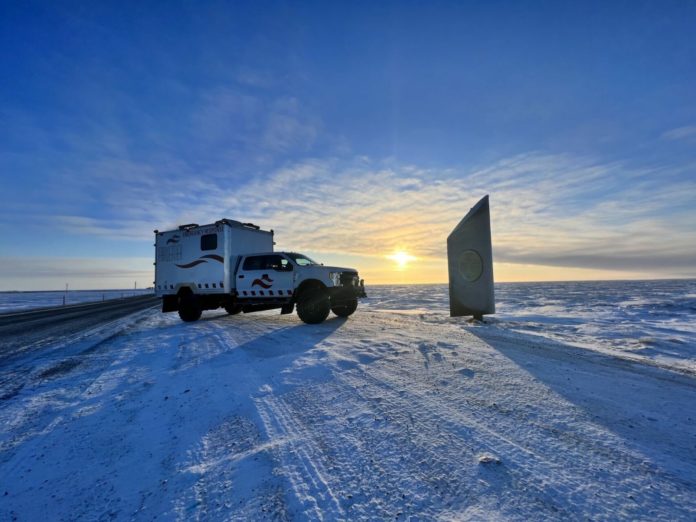By KRISTEN WALKER
We are continually being told that climate change is getting worse and natural disasters are becoming more frequent and intense. Neither is true.
Tropical hurricanes have battered the southeast for centuries, spanning the spectrum of severity. Category 4 and 5 storms, considered the worst of the worst, are nothing new; plenty occurred prior to the world’s so-called addiction to fossil fuels. The Labor Day Storm, considered one of Florida’s most powerful and destructive hurricanes, hit their shores in 1935. Governor DeSantis recently said, “This is something that the state has dealt with for its entire history. It’s something it will continue to deal with.”
The National Oceanic Atmospheric Administration’s records don’t indicate a strong correlation between hurricane intensity and carbon dioxide levels. Quite a few of those tropical storms struck various parts of the U.S. well before global warming became a concern.
Nor does NOAA show that tornadoes have become more powerful. The 1925 Tri-State Tornado, with a 219-mile path across three states in just 3.5 hours, is considered among the most intense.
When last year’s Maui wildfire raged, and many were quick to point fingers at climate change, countless climatologists cautioned not to link the two. Experts had warned for years that the over-grown brush and ignoring recommended mitigation measures would likely lead to deadly infernos.
Even the Intergovernmental Panel on Climate Change does not detect a strong relationship between climate change and extreme weather events.
Yet the panic-stricken rhetoric is driving energy policy with the belief that enacting legislation and overhauling how we develop and use energy will somehow alter global temperatures. Such drastic measures are affecting consumer welfare through energy shortfalls and price hikes, leaving increasing numbers of households energy poor. It has driven inflation and increased federal deficits. Adding insult to injury, these actions are having very little (if any) impact on climate.
Some researchers even assert that a few degrees of warming will benefit plant life and agriculture, and growing seasons will be longer. Renowned Danish political scientist Bjorn Lomborg often shares the fact that rising temperatures save lives because cold weather is more deadly.
Regardless, the U.S. has made tremendous progress in reducing its carbon footprint and curbing greenhouse gas (ghg) emissions and other pollutants over the last several decades. Much of the headway is due to operational improvements and innovation within the industry.
Despite record production levels, oil and natural gas companies continue to reduce ghg emissions through upgraded and modernized infrastructure. The increased use of natural gas, which has replaced a significant amount of coal, is responsible for nearly half the electric power sector’s emissions reductions since 2005; increasing its use has actually done more to cut emissions in the U.S. than solar and wind combined.
The Environmental Protection Agency notes that between 1970 and 2023, GDP increased 321%, vehicle miles traveled increased 194%, energy consumption increased 42%, and America’s population grew by 63%. During the same time frame, total emissions of the six principal air pollutants dropped by 78%.
Energy is produced responsibly in America. Curtailing production here only spurs production in other nations like China and India, which do not maintain the same strict environmental standards as the Western World. Both developing countries are seeing record levels of coal production and are the greatest contributors to global emissions. It makes little sense to restrict oil, gas, and coal generation on our soil only to have it shift to a substantially bigger polluter. Such maneuvers do not change global energy demand; they merely relocate where the resource originates.
Letting the market work and allowing individuals to innovate have facilitated abundant and sensible energy production. The U.S. has already established rigorous environmental requirements, and the industry has shown it can succeed within reasonable confines.
Alarmists would do well to cease the catastrophizing and end-of-world fearmongering. Energy is the lifeblood of our economy. Pragmatism and common sense, rather than climate hysteria, should be driving energy policy.
Energy demand is on the rise; practical solutions are vital to meeting those needs. Rather than a one-size-fits-all mentality, we must implement energy sources that best serve circumstances and do not restrict access to reliable and affordable energy. Consumers need energy that works, is plentiful and cheap, and allows them to carry out day-to-day functions. Anything less is unacceptable. Their well-being as well as the health of the economy should not be sacrificed at the altar of climate agendas.
Kristen Walker is a policy analyst for the American Consumer Institute, a nonprofit education and research organization. For more information about the Institute, visit www.theamericanconsumer.org or follow us on Twitter @ConsumerPal.
This article was originally published by RealClearEnergy and made available via RealClearWire.
